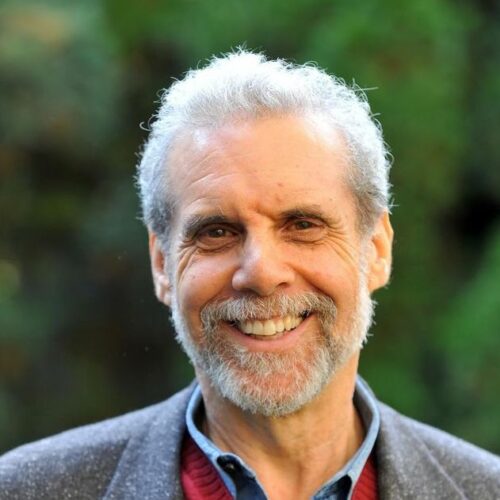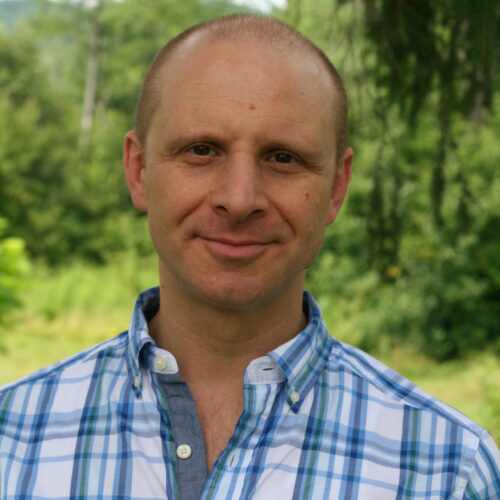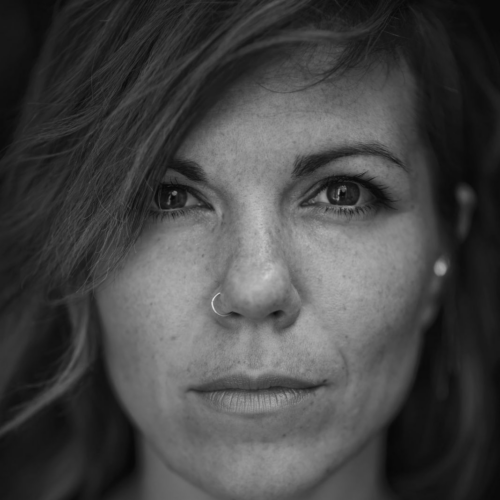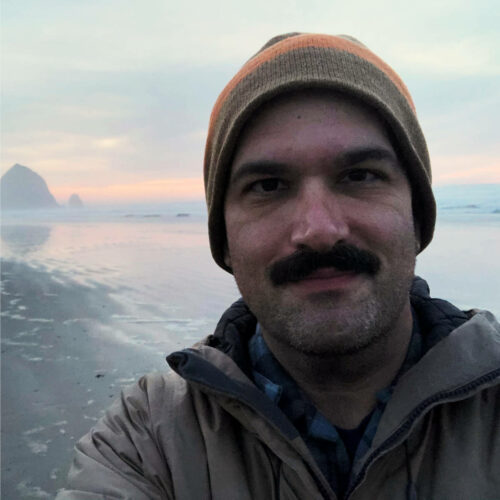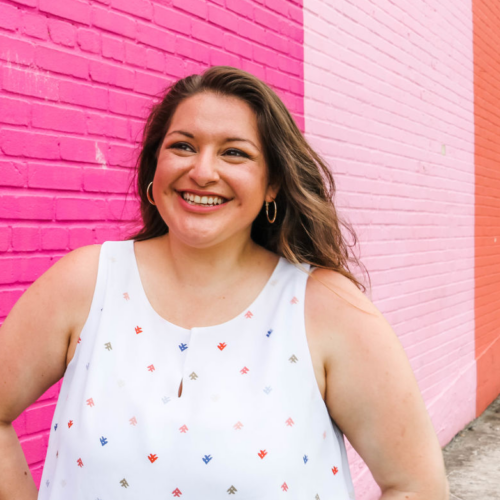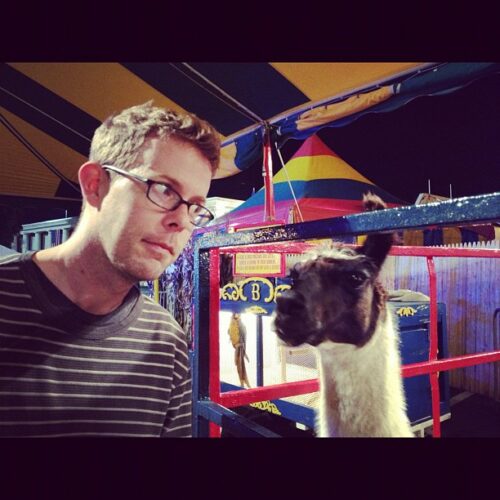
S1E2 Purpose: A Light in The Dark
In our latest podcast episode, co-hosts Daniel Goleman and Hanuman Goleman reflect on the role of purpose in our overall wellbeing, looking at how purpose is fostered within an organization, and the many ways (big and small) it shows up in our lives. Today’s episode features a wide-range of guest appearances including Psychologist Richard Davidson, Former Ernst & Young Partner and Executive Coach Dot Proux, Oncologist Petra Rietschel, and Executive Coach Kully Jaswal. Each guest provides a distinct perspective on the role of purpose and how we can foster more meaning for a greater sense of wellbeing. Read on for guest bios and a full transcript below.
Our Guests
Dot Proux
Dot is an executive coach and leadership development advisor and facilitator. She has 30 years of experience in the professional services industry; as a partner at Ernst & Young (in addition to maintaining a personal 7 figure client service book of business) she oversaw the P&L for a regional specialty tax practice, led the Americas Tax learning and development function, was executive sponsor for the firm’s Midwest professional women’s network; participated in Diversity, Equity, and Inclusion steering committees; and led efforts in client service culture change initiatives.
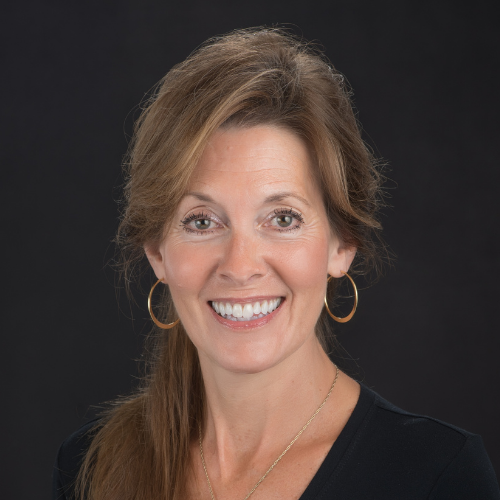
Richard J. Davidson, PhD
William James and Vilas Research Professor of Psychology and Psychiatry and Founder & Director of the Center for Healthy Minds, University of Wisconsin-Madison.
Davidson’s research is broadly focused on the neural bases of emotion and emotional style and methods to promote human flourishing including meditation and related contemplative practices. He has published over 440 articles, numerous chapters and reviews and edited 14 books. He is the author (with Sharon Begley) of “The Emotional Life of Your Brain” published in 2012 and co-author with Daniel Goleman of “Altered Traits” published in 2017. He was elected to the National Academy of Medicine in 2017 and appointed to the Governing Board of UNESCO’s Mahatma Gandhi Institute of Education for Peace and Sustainable Development (MGIEP) in 2018.
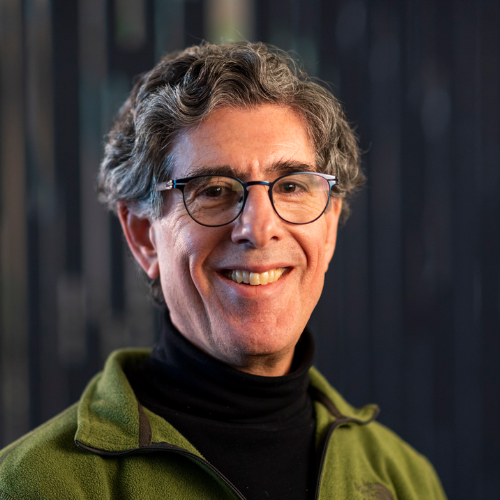
Petra Rietschel, MD PhD
Petra is a triple board certified Oncologist and Hematologist trained at MGH and Memorial Sloan-Kettering Cancer Center (MSKCC). She is currently working to develop immunotherapy options for lung cancer treatment as an executive director in research & development at a pharmaceutical company.
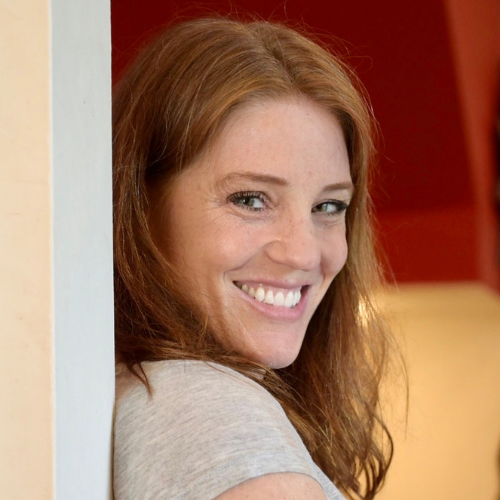
Kully Jaswal
Founder and CEO of Ignition Coaching LLC in New York, Hong Kong and London. Kully is an Executive Coach and Facilitator who has helped individuals and teams maximize their drive, resilience and performance both in work and in life. Combining extensive business experience with coaching skills, she has delivered a plethora of individual coaching assignments and group workshops in the areas of Executive Coaching, Mindfulness, Communication Skills, Presentation Skills and Personal Resilience. Her clients include senior managers and executives in the financial services, consumer, pharmaceutical and professional services industries. At the core of Kully’s coaching style is a desire to build clients’ resilience and emotional intelligence. She is a Professional Certified Coach (PCC) with the ICF, a certified teacher for the Google-born Search Inside Yourself Leadership Institute, and a Meta Coach for Dr. Daniel Goleman’s Coaching for Emotional Intelligence Certification Program.
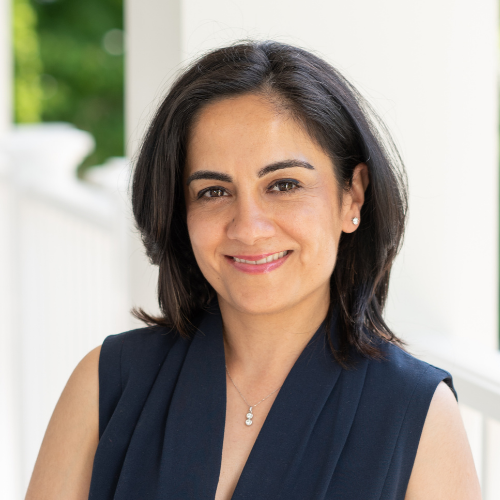
Resources
The following resources were referenced in today’s episode:
- Emotional Intelligence book
- What is emotional intelligence (EI)?
- Building Blocks of Emotional Intelligence: 12 Leadership Competency Primers
- Support our podcast by becoming a monthly Patron.
- Sign up for our Newsletter for the latest on the FPP podcast!
Subscribe to the podcast:
Have feedback? We want to hear it! Submit a Voicemail.
Transcript
Hanuman Goleman 0:00
What do you think is most important for you to do in the world?
Sujata 0:06
Be an artist and be a good drawer, do stuff that good for the world, I’m gonna be in a club to help nature and life, I want to do what I’m doing right now.
Daniel Goleman 0:43
I’m Daniel Goleman.
Hanuman Goleman 0:44
And I’m Hanuman Goleman.
You’re listening to first person plural, emotional intelligence and beyond. Today, we’re talking about well being in a time where the world is experiencing a series of global crises. COVID-19 pandemic coupled with a devastating economic recession, racial tensions, rising mental health needs, we explore how we can foster our well being, particularly through the lens of finding purpose in our everyday lives.
You know, the importance of purpose in life was really brought home to me years ago, I was waiting for a bus on Madison Avenue in New York. It was a hot, humid day. And I was a little irritable, I step on and the bus driver does something very surprising. He says as though he really cared. How is your day going?
And I realized there was something going on here and I sat down and I see that this bus driver is carrying out a conversation with everyone on the bus. You’re looking for suits, are you Well, there’s a great sale in this department store up here on the right. Did you see this amazing exhibit in the museum on the left and oh, yeah, Cineplex here. I know the one in cinema six got great reviews, people would get off that bus. And he would say, as they’re leaving, I hope you have a wonderful day. And he meant it. And that had a palpable effect on the people on the bus, including me. And then, some years later, when this bus driver died, The New York Times ran an obituary and I found out the rest of his story. His name was Govan Brown. He was the pastor of a black church on Long Island. He saw his passengers as part of his flock. He was tending to his flock while he was driving the bus. He was the only bus driver in the history of the Transit Authority, who they had to throw a retirement party for because he had so many fans. He got 3000 letters of commendation, not one, negative one. And this really brought home to me how having a purpose can matter, and how you can bring it into the most mundane activities, driving a bus, encountering strangers, but he had heart he had the sense of concern for people and genuinely wanting to connect with them. And I think it made all the difference because he was boosting people’s well being just by their being on the bus.
Gosh, I’ve heard that story before.
Daniel Goleman 3:29
A lot.
Hanuman Goleman 3:40
I have heard this story many times. And it makes me wonder what’s the connection between purpose and well being? There’s something there, right? Maybe you’ve met someone who feels like they’re doing exactly what they’re meant to be doing. And it doesn’t matter what they’re doing. It could be anything keeping a building clean or import export or whatever. When the work has meaning and purpose. Those people always have this piece to them, this feeling that they’re deeply Okay. How can we cultivate that well being and find purpose in the middle of a global health crisis? Dan investigates in our first act.
Daniel Goleman 4:20
In today’s podcast, I’m talking with a very dear old friend Richard Davidson. He and I met when we were graduate students at Harvard. We were both interested at the time in meditation. But our mentors, there are certainly our professors were not interested. They thought this was a mistake. But we pursued it anyway. You have now founded something called Healthy Minds innovation. Could you tell us about it?
Richie Davidson 4:50
It’s a nonprofit corporation. And it was started because of this realization that we can no longer be just scientists, we also needed to take the insights from the science and turn them into tools that can actually help nurture well being at scale, the principal product that we’ve developed is a program to cultivate the four key pillars of well being. And so that’s what’s part of our Healthy Minds program. And listeners can download this, it’s available free, they can go to the website, try healthyminds.org. And learn more about it. And these are components of well being that have been investigated scientifically.
Daniel Goleman 5:41
So if you put them together is that well being?
Richie Davidson 5:44
Yes, it is. If you put these together it is well being. And also, it’s one of the reasons why we think it’s important to recognize that well being requires then the nurturing of all of these capacities, not just one. So just to finish naming the four components of well being the first is awareness. The second we call connection, and connection includes qualities that are important for healthy social relationships, qualities like appreciation, and kindness, and empathy and compassion.
The third component, or pillar of well being is insight, and insight here we take to be self knowledge, and specifically knowledge of the narrative about ourselves that we all have, we all carry around this narrative, we all have these beliefs about ourselves. And part of well being is deeply understanding the nature of this narrative and having a healthy relationship to the narrative. And we know at the extreme of the distribution, there are people who have very negative self beliefs, and who actually hold these beliefs to be a true description of who they are. And of course, that is a prescription for depression. And so part of well being is, is really being able to nurture a healthy relationship to this narrative. And finally, the last pillar of well being is purpose. And purpose here is about identifying our true north and particularly finding what scientists psychologists have recently called the self transcendent purpose. And by this they mean, a purpose that goes beyond simply themselves. It can include a purpose that in somewhere and other involves helping people working with others, working for the greater good. And developing the awareness of this sense of purpose is really important for well being. And of particular relevance is including more and more of the activities in everyday life, as being central to this purpose. And again, these are qualities of well being each of these that can be nurtured through specific kinds of practices.
Daniel Goleman 8:19
How would you suggest that people could find equanimityduring these times?
Richie Davidson 8:25
I think most people would agree that the crisis that we’re facing today with the pandemic is unprecedented, none of us have faced a crisis of this kind of global proportion at any other point in our lives. And I think that this can be potentially used as an opportunity for recalibration. I think many of us would subscribe to the view that the trajectory that we were on before the pandemic was not a particularly healthy or sustainable one.
None of us can survive without activities of others, we depend on others in the food chain to enable us to eat every day. We depend on others to deliver things to our homes, which have become increasingly important during this time of the pandemic. We depend on others who are willing to sacrifice their own health to benefit others, our health care workers and first responders. And this is an opportunity to lean into this sense of appreciation. My aspiration is that the post pandemic world will look different than our pre pandemic world in these ways.
Daniel Goleman 9:43
I hope you’re right. Do you think we can have well being all the time?
Richie Davidson 9:47
Hmm, I think that I and I know you also have been blessed with meeting some remarkable people on this planet. Who I do think Have the unusual capacity to express well being continuously. I don’t think it happens that often. But I think that it is possible. And I think that it is within everyone’s reach in principle. But it requires that we nurture it, it’s a precious capacity that I think every human being shares. But it does require that we care for it and cultivate it in a continuing way.
Daniel Goleman 10:30
Sounds to me like there’s an implicit theory of change here for society at large, that the more this ability to cultivate these pillars of well being spread, the more you could say a society in general has well been Would you agree with that?
Richie Davidson 10:49
I would, I would very much agree with that. And one of the ways to think about this is a public health need. And I would go even further to say that it is an urgent public health need, one of the things that I often remind people of is that when human beings first evolved on this planet, none of us are brushing our teeth. And yet today, virtually every person on the planet brushes their teeth, and this is something, it’s not part of our genome, we just do it because it is something we recognize is good for our personal physical hygiene. And what we’re talking about is something important for our personal mental hygiene. And I think most people would agree that their minds are even more important than their teeth. And the data from neuroscience that’s coming out suggests that even if we spent as little time as we do, brushing our teeth, nurturing our mind every day, this world would really be a different place.
Daniel Goleman 11:52
Can you give us a quick example for awareness, insight and purpose of the kinds of practices that can help?
Richie Davidson 12:00
Sure, for awareness, it’s really very, very basic. And we can use anything to support our awareness, literally. So we can become aware of our breathing, we can become aware of sound, we can be aware of visual impression. And the quality that we’re nurturing here is knowing that we’re seeing or knowing that we’re hearing or knowing that we’re feeling something in our body. And it’s this knowing quality, which is at the heart of awareness. And so this is something that can be done anywhere, anytime. Insight is really about developing an understanding of the factors which are influencing our conception of ourselves, our beliefs, and our expectations. And one of the things that can really help is if you’re working on some issue, either in your professional life or personal life, where you’re having some challenge to envision what it might be, like, if you were to let go, of all your beliefs and assumptions and expectations about that situation, can you envision what that might be like? And this is a very simple kind of practice that can help people gain insight into forces that are operating in their mind, typically unconsciously, that influence how we see the world and how we see ourselves. And this can be really helpful. And in terms of purpose here is really leaning into what might be the reason why we do things. So, you know, we can start with very conventional things like why do you have the job that you have? Well, I need to make money to live. Okay, well, why do you need to make money to live and you can keep asking questions in this way. And you can, ultimately, and I think, for most people pretty quickly arrive at a point where you’re doing this because it’s gratifying. And why is it gratifying? It’s gratifying, because you’re actually helping others, you are educating others, you may be helping to heal others, you may be helping others by repairing their plumbing in their house, whatever it might be getting to this larger purpose that involves a kind of self transcendent value. And if we can help people arrive at that place using these very simple practices that can be enormously beneficial so they can really remind themselves that that’s why they’re doing it. And that can be very liberating. And one of the things that we know from scientific research is In older folks, folks who are in starting in their 70s, having a strong sense of purpose in life is the single most important psychological predictor of longevity. And that just clearly underscores how important this is, as someone in their 70s. That’s great to hear.
Daniel Goleman 15:20
Richard Davidson, I want to thank you so much for spending this time, sharing your wisdom, your knowledge, your expertise. Thanks again, Richie.
Richie Davidson 15:29
It’s my pleasure. Thanks for having me.
Hanuman Goleman 15:42
Purpose is something that I’ve been thinking about a lot, because I’m 45. Now, and I didn’t really think about it much before now. Ritchie talks about true north. And as that sense of purpose, and it really is that it’s the intention that makes a story out of all of your actions. And so it’s interesting, not having a cohesive intention in my actions over decades. There’s a way that it feels a little bit floundering, you know, a little bit here’s the word foundering. I always picture a flounder like a fish. But I think the word is, is actually founder for some reason, it should be flounder just. Yeah, there’s, there’s a way in which those those actions aren’t rooted.
Daniel Goleman 16:42
You know, when I look back at my life, I don’t think I’ve had an explicit purpose that I could name it was more implicit in decisions I made, like, deciding not to stay in academics and to go into media. I felt that what pulled me was the ability to basically educate a lot of people, not just a few people. And that’s been, I think, a guiding maybe true north, but I never articulated in terms of a purpose. It was more what had compelling positivity for me, you know, what I was drawn toward more. And I think most people don’t think about purpose, you know, raising you, and then you raising these great grandkids.There’s certainly meaning in that for me. And I didn’t ever articulate it explicitly. So I maybe it’s too much to ask people to have a purpose they can put in words, but rather reflect on what the major decisions they made in life, suggest to them about what’s meaningful for them. So one of the things that stood out to me is that Ritchie says these four pillars of wellness can be cultivated, and that they must be cultivated. If we’re to progress as individuals and communities.
Hanuman Goleman 18:22
I’d be curious to see a tangible example of what this looks like on the ground within an organization. How can systems, How can organizations create cultures of well being? To investigate this question? First person plural producer and correspondent Elizabeth Solomon reports in Act Two, but first, a listener comment.
Veronica Listener Comment 18:45
Hello, my name is Veronica Martina Castro. I’m talking to you from Buenos Aires, Argentina. I enjoyed listening to your podcast very much. And I wish you take women over 50 under the spotlight of evolution of AI. Thank you very much.
Elizabeth Solomon 19:05
Veronica, we couldn’t agree more. And act two and three. Today we’ll share two stories you might enjoy. The first is true. After hearing Dan’s interview with Richie one of the pieces that really stood out was the fourth pillar of well being purpose. I immediately thought about dot executive coach leadership development expert and a former partner at Ernst and Young, the global professional services firm referred to as EY. EY was one of the first large multinational organizations to integrate the concept of purpose into their culture. And they did it during my tenure. I met dot when she was a coach in my emotional intelligence coaching program. She has served as a valuable mentor for many of us studying emotional intelligence and advancing our skills as coaches here got and I talk about purpose well being and the role of organizations and helping us make and find more meaning. For more about dot, see her full bio in the show notes of this episode.
So let’s start with discussing your time at Ernst and Young. So just to clarify, how many years were you with the firm? And at what point in your career did you become a partner?
Dot Proux 20:17
Yeah, I was with eBay for 22 years. And prior to that I was with Arthur Andersen for eight years. So out of those 22 years, I was a partner for 15. You were a partner, when the firm began to emphasize two things. One is purpose and one is coaching. What was that cultural change or cultural shift? And what was it like to be a partner at Ernst and Young during that time, it really was transformational. The firm transformed in this was early in my career as a partner, so I became a partner in 2000. So all of this was happening in the very late 90s. I think there was a start to the conversation. But it really started to happen in earnest in the early 2000s. And my recollection is that the coaching culture was first, it was a deliberate, conscious decision, we want to have a coaching culture. And so it was a culture change initiative. That was done methodically.
I suspect, and while I wasn’t a partner, when all of it was being decided, I suspect the reason that it happened was a little bit of what I experienced as a high performer at Ernst and Young, in that organization. performance was the name of the game, right? It’s a for profit business. And not only just for ourselves, but we were constantly trying to help our clients increase their profit, and high performing high achieving kind of high striving personalities, were doing really well at the firm. And when you go at that pace, without a larger purpose in mind, and just for the end goal of, you know, helping your clients certainly, but increasing profit, you burn out, you know, and you lose, you kind of you can lose yourself in it, it becomes a little bit of a rush, there’s an adrenaline, a little bit of an addictive feeling to high performing and achieving, achieving, achieving. And so I suspect that they started to notice burnout, especially in the leadership levels, I know that in the colleagues that I worked with, and in myself, that adrenaline rush has a cost. It’s a little bit like drinking too much coffee, and after a week of that you’re exhausted. So the coaching culture change was to help people connect to why am I doing what I what I’m doing. It was to help us be more sustainable. Sustainable people, sustainable producers, sustainable clients, servers, have better relationships on our teams, better relationships with our clients, coaching, as you know, Liz, it’s a different kind of relationship. But it was transformational to watch that took several years, you know, something this large, doesn’t happen over the course of a few months, or even one or two years. It was a several year rollout. And it was part of a larger initiative to develop our people more thoughtfully. And we used the somewhat well known learning and development model that only 10% of how we learn and grow happens in the classroom. 70% of it comes from what we do out in the day to day world with other people in that 20% we call it coaching. It’s the conversations that you have with somebody who cares about you, and who is skilled in eliciting insights from you about what you’re learning. And what we just deeply ingrained into our DNA is, if we’re faithful to that model, we will learn more quickly. We will grow more meaningfully, and our relationships will be better.
Elizabeth Solomon 24:16
just acknowledging that coaching was still fairly new compared to how much a part of the sort of corporate lexicon it is now. Yes. And so I’m wondering, as you were rolling this out, or over the course of these three years, how was this cultural shift? How do people respond?
Dot Proux 24:36
Well, really well. We would you know, like any good organization does when it wants to know How are people feeling about this survey survey survey survey. It takes a conscious effort to begin to speak in a different language, especially people who are really good at advising and consulting to become a coach is a different thing. And so performance conversations became more asking about what experience are you having? What do you want in your life? How does that relate to what you’re doing? Ie Why? How did that relate to your performance this year? What did you think about your performance this year, much more give and take. And the response in those surveys was, Wow, that’s a lot better. I actually feel like somebody is interested in me and interested in my experience at the firm.
Elizabeth Solomon 25:29
Did the focus on purpose or even the language around purpose emerged distinctly from creating that coaching culture.
Dot Proux 25:38
My experience as an individual leader at Ely was that it most certainly did. So when the conversation started about, hey, we want to be a purpose driven organization, we had been in the coaching mode for a few years. So it was a natural progression. what it was, it felt like for me, as an individual leader, an acknowledgement of what life is really about anyway. So it removed that separation between work and the rest of life, and acknowledged that what we really are, are human beings endeavoring together toward a common cause. Let’s behave like human beings. let’s acknowledge our humanity, let’s acknowledge that we’re motivated by deeper things than just meeting our performance goals. Yeah, so it was very, for me, it was a it was profound. And it did emanate from from the coaching. So what had happened in our culture was, again, there was just this acknowledgment that we’re not AI or not artificial intelligence, right? We’re human beings. And it’s, we need strong relationships at work. We need to be, we need to be feeling as if our leadership cares about us. And the experience that we’re having.
Elizabeth Solomon 26:59
Was EY measuring burnout rates before instituting a coaching culture and asked her and what was the difference there?
Dot Proux 27:06
Yeah, yeah, they definitely were measuring burnout, I would see statistics every now and again, and at leadership team meetings, they would present us with that info, you know how when you’re doing large organizational change, to get a big ship, to change direction, you look at these tiny, meaningful nugget questions, and one of those that we focused on is we have got to be talking with our people about what they want from their careers. We can’t just be talking about what they did this year for the firm, you know, and how their performance was. And so that question was what we focused on? Has somebody asked you about your long term career aspirations in the last six months? And And the answer to that skyrocketed? What does it take to create a successful purpose driven culture, in any cultural change initiative, there may be a grassroots need, that kind of bubbles up. But nothing really happens until the leader gets on board. Our CEO was super vocal, super vocal, super authentic, super transparent, super vulnerable, about all of these massive cultural changes that I would call hurtful, right? moving to a heartful culture in many different ways. So what has to happen is it has to be the CEO speaking it. And it has to be authentic, because people are very good at reading other people. And, you know, we can tell when it’s not real, we can tell when it’s on the pamphlet, and it’s not, you know, in the in the boardroom, or in the conference room or out in the field where we’re working. So leadership messaging, first and foremost. And then it has to be frequent. It has to be frequently discussed when we’re doing talking about our business agenda. There has to be an element of that discussion that includes How does this align with our purpose? You know, when we’re making major decisions about people’s careers, how well are they living our purpose. So it has to pervade everything and for that to happen, the leaders have to expect it to happen. I have so much respect for my firm, because they do put their money where their mouth is and where their heart is, Hey, folks, this is what we’re talking about. This is the behavior we want. These are the emphases that we want and how we’re operating in the world that we share together. As soon as we felt comfortable that there was no mystery anymore about what that was the compensation structure would shift to make it accountable. And that’s when you would see that people would be removed, you know, from leadership positions if they weren’t exhibiting what the firm was striving to move itself forward to.
Elizabeth Solomon 29:54
Is there a story that you can tell about coaching a leader through a purpose or well being crisis, there is a tendency in my coaching practice when people hear the word purpose.
Dot Proux 30:07
And it’s always a question that I asked early on in the relationship, you know, what’s your philosophy in life about the role that purpose plays for you? Some people can very quickly say, oh, I’ve always known that I have a singular purpose in life. And it’s this, other people automatically say, I don’t know, I feel like purpose is so grandiose a thing, I’m not somebody who’s going to go out and change the world, I’m not, I’m not starting a large not for profit, I’m not developing a grandiose new pharmaceutical solution to a pandemic, it’s not me, I don’t think I have a purpose. And so, to me, that is a bit of a crisis, right? Because if you don’t get out of bed in the morning, if you can’t get in touch with why you’re here, it’s hard to move yourself forward. So the crisis I would see, that I tend to see is, people give purpose a capital P all the time, or frequently, and they go at, I’m not worthy of purpose with a capital P. When really, it’s it’s little p purpose, you know, its purpose in your day to day life, its purpose in everyday interactions. Its purposes, like, be kind purposes, like, do no harm purposes, like encourage. And then some people do have larger purposes, develop a drug that’s going to stop the pandemic, right. But I have to say, and I, from my own personal experience, and maybe you can, you can comment on this as well. When you live a purpose in an individual interaction, if that purpose is the kind encourage that person acknowledge that they’re there, look them in the eye when you’re talking, when you live, that the sense of joy that you get is deeper and more profound. It’s the one that brings tears to your eyes. I mean, I’m sure it would be joyful to develop the vaccine for the pandemic, I’m certain that they are joyfilled about that. But it’s still small day to day ones that you can do consistently, over the course of the week, that pull you forward, that really resonate with your soul.
Daniel Goleman 32:50
Lovely distinction between big P and little p purpose. Because it acknowledges that so much of what we do in our day to day lives, just ordinary interactions have meaning. And we can have the implicit, maybe even unconscious intention to help that person to have a positive impact in some way. And that’s very meaningful, certainly not a capital P purpose necessarily. And but it is definitely purpose. And the capital P purpose is is nice, but I’m not sure that we need to capture it, I’m not sure. And for one thing, I think it may change as we go through life. It may change in different domains of our life at work, or at church or synagogue, or, you know, with our family and our friends, we can have different capital P purpose, in different contexts. There’s an element here of trusting in humans and humanity.
Hanuman Goleman 34:04
When you connect somebody to what makes their own heart sing, what arises is this explosion of excitement and hope and energy towards that, that vision, whatever it might be, when you’re connected to your heart, there’s a relationship even to the exhaustion that comes out of that, that doesn’t feel as depleting as exhaustion that comes out of doing something that you’re totally disconnected from and don’t care about.
Daniel Goleman 34:40
Hanuman, and that reminds me of a quote that Viktor Frankl cited in his book about meaning and purpose in life. It comes from Nietzsche. He said, The person who has a why to live can endure almost any how it just taught it Just speaks to what you’re saying. Yeah, there’s what’s known technically as motivational learning where a coach or a counselor would ask you question after question to get at what really motivates you? What is it you really want? What is it that you’re going after in life. And also, you can have a mentor someone who you see as a model, and implicit in that is their sense of purpose. And maybe it resonates with your sense of purpose. But I think going through an investigation with someone else, a coach who really wants to help you, is one very effective, powerful way to get closer to what is in your heart what really matters to you.
Hanuman Goleman 36:06
I’d love to hear what a personal journey of finding purpose looks like. In Act Three, first person plural producer and correspondent Gaby Acosta reports.
Gaby Acosta 36:19
One of the things that Dot Proux shared in Act Two was that people often struggle to find their purpose, because they think it has to be grandiose or life altering in order to be meaningful. But is having a big P purpose enough?
Do we also need a little p purpose to find joy in our lives?
Here, I talked to Petra, an executive at a pharmaceutical company whose team develops immunotherapy for cancer patients.
Petra has been working with executive coach Kully Jaswal to expand her relationship to purpose beyond saving lives and into her personal life.
Listen as Kully and Petra discuss Petra’s evolution through her coaching journey.
Petra Rietschel 37:14
So my name is Petra Rietschel. And I’m German by upbringing moved to the United States 20 years ago, I’m a medical oncologist, that practice for many years, and now I’m part of the biotech world where I develop immunotherapy for cancer patients, and oncology as well.
Kully Jaswal 37:37
And I’m an executive coach and founder of ignition coaching. So I do executive coaching for a pitcher his organization, and and I was asked to work with Petra, and very excited about the opportunity, because I’d heard that she was an amazing, phenomenal scientist. And there were some fine tuning skills just around some of the areas that she’d like to focus on.
Petra Rietschel 37:58
Yeah, so at the beginning, I had delivered everything what I could deliver at outstanding performance reached all the goals. And I was told I needed to soften around the edges a little bit. If I wanted to reach the next level in my career, I kind of said, Okay, tell me what I need to do what I need to say, and then I will produce that for you. And after that I can go back to who I am. And that’s how I actually met Kully. And I said, Kully, I, I’m almost 50 I really don’t want to change who I am. Shouldn’t I go somewhere else? And then she said, No, no, it’s not. We’re not trying to change who you are. We’re just trying to help you have an easier time saying what you want to say and reaching your goals, and actually have people listen to you. Because the way you’re approaching it now just makes people put their walls up and they’re not no longer listening. Kully was starting to work with me on self love, and paying attention to your needs, take time off, relax, take a walk, she said, if these meetings aggravate you these particular meetings, put your headphones in, take a walk, just be kind to yourself, because when you’re kind to yourself, you’re then able to be kind to others, right? You can’t give love if you don’t love yourself. So that that was an important change that I had to make. Because of these pandemic times, I had to give so much to my children, my family, my job. And everybody came first until I had nothing left to give.
Kully Jaswal 39:23
And I observed that as well. I think what was one of the shift moments that I sort of remember us talking about was just even the gratitude piece, right? Just be grateful for what we do have and less focused on sort of the things which are not working or the people that are really annoying us. How can we just given everything that we’re going through, just start to take a moment of pause and focusing on what’s working and getting less worked up and sort of where was a mindset effectively loved it when you were coming to the sessions and noticing those little small changes which were happening having a bigger impact and I’d love to just share kind of how Some of those, those tools or tactics that you were using, how that helped you both in your personal and professional life,
Petra Rietschel 40:08
I had, I have a journal where I write down moments that I think I should share with colleagues. But I do visualize Kully and how she would respond when I’m in a stressful situation. So in the professional life, I got to put together the most amazing team in this year and the sense of purpose that we all had to help and to, to bring this immunotherapy to cancer patients that had only cytotoxics that were pushing them to the brink of death. And now you can actually enable and empower their own bodies to fight the cancer. That was, that was a purpose that I could identify with.
Kully Jaswal 40:46
I remember we did the game changer index report to help identify your leadership style, right and, and help you to clarify the decision as to whether to stay or to go. Just curious how that report in itself helped you to divine who you are, and sort of bringing it back to your purpose and what it means for you to show up the way you want to show up?
Petra Rietschel 41:07
Yes, so I had been told that I wasn’t the great strategist, I’m too pragmatic. And so I was concerned about that. And I figured maybe I have to leave to learn strategy. And when we did this test, I scored the highest on strategy way higher than expected. And we discovered that what people think of strategy is different for every person, right? So a strategist. And this assessment was somebody who took good ideas and made them work, put them into reality, right? So that gave me the confidence that I am who I want to be. And this is what patients need. They don’t just need we have plenty of game changers in this company, that have ideas that will never go into reality. Right? So they need somebody like me, like with this program that we hope through last year that can make things happen. And that has an kind of realistic approach to things. And I felt like I could make my contribution and that company that you’re both really speaking to
Gaby Acosta 42:13
something that Dot Proux, who is our previous guest also talked about people feeling overwhelmed with the thought of purpose has to be this grandiose idea, that’s going to change the absolute world. But people feel a bit unworthy of that. I’m wondering, Petra, if you could actually speak to that, in your experience? Do you feel like you have clarity on either a big P or a little p or both and your life after your coaching engagement?
Petra Rietschel 42:42
In my career as an oncologist is it’s easy to find purpose in helping these people, none of which lives longer than six months after they meet you. Going to biotech I that was more difficult, the Collie helped me identify that the purpose was still there, right on a bigger scale and and that I you know, I take tremendous crowd out of, you know, being able to to advance these immunotherapies. But the small purpose is kind of that if you are considerate of people around you, you’re kind and and do you let things go somebody bullying you another line at the grocery store, so not to attack them because you can, but you just try to be the bigger person and be kind, that that affects everybody around you. And it doesn’t work and it doesn’t you have in your personal life. And it’s just the impact of that is amazing. And I’m trying to teach my children that right. It’s easy to criticize, it’s easy to come up with what you don’t have and what other people have. It is so hard to just be kind and good all day long. Regardless of you know, if somebody saw, you know, it’s really nasty to you to turn around and behind. And I’ve used that at work. And instead of fighting back, I would just sit and pause. And people feel horrible about being mean to you. While if you fight back. it escalates into this big argument and everybody comes out of that feeling awful and nothing gets solved.
Gaby Acosta 44:20
Can you think of a specific example in your life about how you’ve applied the little p purpose since you began this experience?
Petra Rietschel 44:30
Yeah, I was waiting in line at the ice cream store with my kids. And my child was very focused on the ice cream. And then somebody and an elderly lady pushed herself in front of me and cut in line and now so there’s lots of things I can say about that. Like you’re retired, you should have a lot of time. You could wait in line like everybody else you don’t use as a crutch. So yes, so that would have would have been easy to be nasty about All right. And but I saw my daughter looking at me and then to just say, you know, I’m sure she has a good reason for being in a rush. Maybe somebody’s waiting for her, this must be urgent enough for her to actually cut in line and, and to let it go right. And then the lady turned around and said, Thank you. And I thought that was a valuable lesson for my daughter. And it also made all of us feel better, including the lady that cut the line. And as a German, I feel very strong about lines. And I would have felt obliged to point out the value of the line before but it’s not worth it. And Kully always says that you don’t have to fight all the battles, right? It just wears you out and makes you negative and beaten up at the end of the day.
Kully Jaswal 45:44
Pick your battles, right, it’s what we always say. So for me, the big key is really the work we do is about inspiring others to live more meaningful lives, and ultimately, for people to find greater fulfillment in both their personal and professional lives. So that we can right we can find greater kindness and connection in the world we’re living. So that’s my bigger P and it’s about helping individuals, organizations, teams to do that individually. And collectively, I feel if we can do that it can have a huge trickle down. impact. And and as we’re hearing from Petra, just in terms of the impact that can have not just on one individual, but the people around us, the little p for me, as well as similar to Petra, in the sense of what impact can this have me in my life in my family, my husband, two kids, and our dog is like, how can we continuously support one another to have greater love compassion care, especially in this last year? 2020, where I feel we’re constantly thrown with so many different challenges is how am I showing up as a mother as a sister, as a daughter as a wife? How am I showing up and being my best self, and applying these tools and practices to the ones that matter to me the most. So that’s constant is work in progress. And I feel and the more that I can work on myself, obviously, the more I can help others as well. I wonder if you could give an example about how you’ve seen purpose be not just in your own life at work, but how it’s trickled down into the work with your team in specific ways. So I guess it’s the fact that I have such a tight knit team, and almost all of them 80% of my team members are young women with young children. So going through this together and and so that the shared purpose and also the shared love and understanding to tell each other It’s okay, your child’s academic career will not be destroyed forever, because they’re not doing well on zoom and kindergarten, right? To put this in perspective, and, and to to feel like we’re doing this big thing and a company that’s providing help and COVID as well. And and we’re getting, you know, this done, we need to give ourselves credit and feel good about that. And then we need to be kind to our family, right? They do not have to bring home aides, or or did the apartment doesn’t have to be, you know, sparkling clean and so so I think that’s, that’s how I felt it trickled down that that the fact that the bigger purpose is more important than all these little things we tend to torture ourselves with, and that you can pass that on by, you know, not making people work nine to five, but accommodate their families. When somebody is sick to cover for them to have each other’s back. Nobody ever, you know, takes things out on the other member, we all protect each other. That is how I felt it was trickling down, I really felt that Kali had had changed my life. And I didn’t have to change. I was so torn initially with this. You know, I’ve heard this all my life, you’re great at what you do, but your personality sucks. And I was like, What do I do with that now with 50 and it turned out to be such a small fix.
I love that and there are so many people that are struggling with that right struggling to work out what is their purpose and what should we be doing? And and there is no clear pathway and I feel it’s okay. And and I love there was a quote from Steve Jobs he was talking about like, look at your past and think about the connections that have been made in the past and again, how are you going to get to your move forward in terms of the direction that you’re making? And I feel sometimes the past connections don’t always connect. However, if we can start to just take that moment to really think about what drives us What impact do we want to make in the world or even sort of ourselves that can help to identify our future and it’s never too late, I feel it’s never too late to change. And as a coach, I love to be able to help people make those career shifts and really do something that’s going to be more meaningful in their lives. So I always just share with everyone, whatever you’re doing, it will make sense at some point. And it’s okay just kind of follow your gut. We’re always constantly like, what do we do? And it’s not obvious, but I think even if it is a step in the right direction, doing a little bit, and as you’re doing, Patrick, that’s giving you that fulfillment, that will ultimately guide you in sort of one day, working towards clarifying what that is.
Petra Rietschel 50:41
yes. And I feel like I have this team. And if I can help them, find what their interests are, and then I assign them to projects that are related to that, or I introduce them to the right people that are active in that area, that gives me incredible, an incredible sense.
Daniel Goleman 51:08
It’s a lovely report from the oncologist about finding purpose, his obvious purpose and mission to being in medicine and being an oncologist and then going into biotech to help find a medicine or treatment that will help people in that. But if the rest of your life is a blank, when it comes to purpose, and meaning that then it feels a little hollow. And I love that she saw that moment in the ice cream store as a chance to demonstrate some meaning. And actually, it was a teachable moment for a daughter, that instead of being angry and making assumptions about the woman, she could give her some space and be patient and say maybe she has a good reason. I’d love that, because it’s taking the perspective of the other. It’s empathizing. And then the woman says, Thank you, wow, that really brought it home to her and to her daughter, that people may have the reasons for doing things. And if you give them space, you may find out what that is. And it’s a, it’s an act of kindness. And kindness in itself is a purpose, small purpose.
Hanuman Goleman 52:23
For me, that just talks so much about what we don’t know, in the world about what’s happening for everybody else. I don’t know if it’s purpose, but it’s just a huge, huge skill to in those moments when we have emotional flare ups to be able to recognize the blind spots that we have and the that are informing that emotion, and to not just recognize them, but I think acting on blind spots in that way means actively. Like, I don’t know if it’s reigning in but mitigating at least or actively balancing out the emotional reaction with this understanding that you don’t know what’s going on. And this person might be in trouble or, you know, in a rush, or whatever it is, or I, you know, some more personal front, you still don’t know what’s been happening for that person. And it’s just so important to remember always,
Daniel Goleman 53:32
yeah, hunt them, and it reminds them it’s kind of a profound empathy. Being able to assume the better about someone or maybe the best about someone and then think from their point of view what might be going on. It’s so different than just making a snap assumption. And acting from your assumption, which I you know, frankly, that’s my probably default in situations like that. I wish I could be more like the lady and ice cream store.
Hanuman Goleman 54:03
Right? I mean, that’s what happens for all of us. That’s how we’re wired. Right? We have we, you wrote a book about this, we, when we get really emotional, these things take over in our minds, and it’s so hard to just remain human. Petra did such an amazing job somehow managing to stay human amidst those difficult emotions.
Daniel Goleman 54:24
And you’ve just reminded me that you write about what you need to learn. It seems to me that each one of these stories that we’ve heard in today’s podcasts, circles back to the importance of self awareness and emotional intelligence, tuning in to what matters to you. Demand self awareness, but I think also one of the fruits of self awareness is a better sense of what your true north actually might be.
Hanuman Goleman 54:57
Yeah, that’s That’s been my experience, but rather on the other side of that where I, I, there’s a palpable lack of self awareness and, and from that is a reason, a lack of purpose. But, but I think it’s, I guess what stood out for me about this episode are these various ways that we have purpose in our life and that it’s really important I can tell that it will be important for me to reflect on purpose at a number of different levels, because I have a real feeling in my life that I want to leave the world a better place, I want to create the conditions for less human suffering. But then I also I see that one of the ways that I can do that is to have as healthy an immediate world as possible. And so, really gathering my attention and actions and regarding my immediate surroundings with an eye to the more global impact of that, I believe in ripples, I suppose I believe in ripples of butterfly effect when we are well. The world that we are a part of becomes more well.
Daniel Goleman 56:18
Oh, I like that because you know, it expands the concept of well being from personal to collective to global even. I love that.
Gaby Acosta 56:42
Thanks for listening to first person plural, EI and beyond. Subscribe now and sign up for our newsletter to get notified as new episodes are released. Special thanks to Sujata whose voice you heard at the top of the show. And to today’s guests: Richard Davidson, Doc Proux radradra, Petra Rietschel, and Kully Jaswal.
For guest BIOS, transcripts and resources mentioned in today’s episode, check out our episode notes on our website firstpersonplural.com
This episode was written and produced by Elizabeth Solomon and me Gabriela Acosta
Episode art and production support by Bryant Johnson.
Theme music by…Amber Ojeda. The New Moon by Irving Berlin and Dream by John Cage.
Until next time. Be well.

 https://www.clearinginthewoods.com/
https://www.clearinginthewoods.com/
 @https://twitter.com/healthyminds
@https://twitter.com/healthyminds @https://www.facebook.com/centerforhealthyminds/
@https://www.facebook.com/centerforhealthyminds/ @https://www.instagram.com/healthy.minds/
@https://www.instagram.com/healthy.minds/
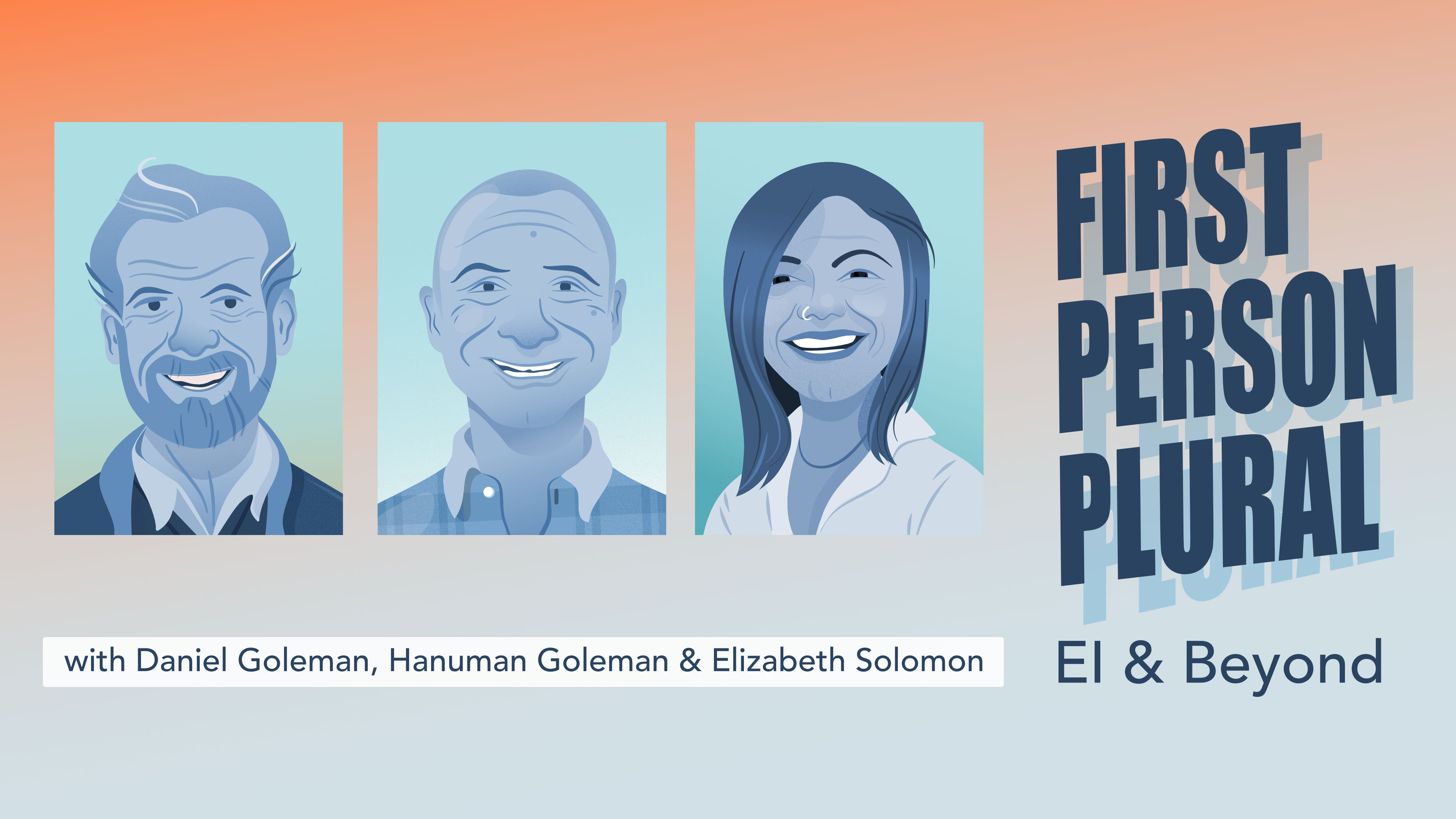
 Apple Podcasts
Apple Podcasts Google Podcasts
Google Podcasts Spotify
Spotify